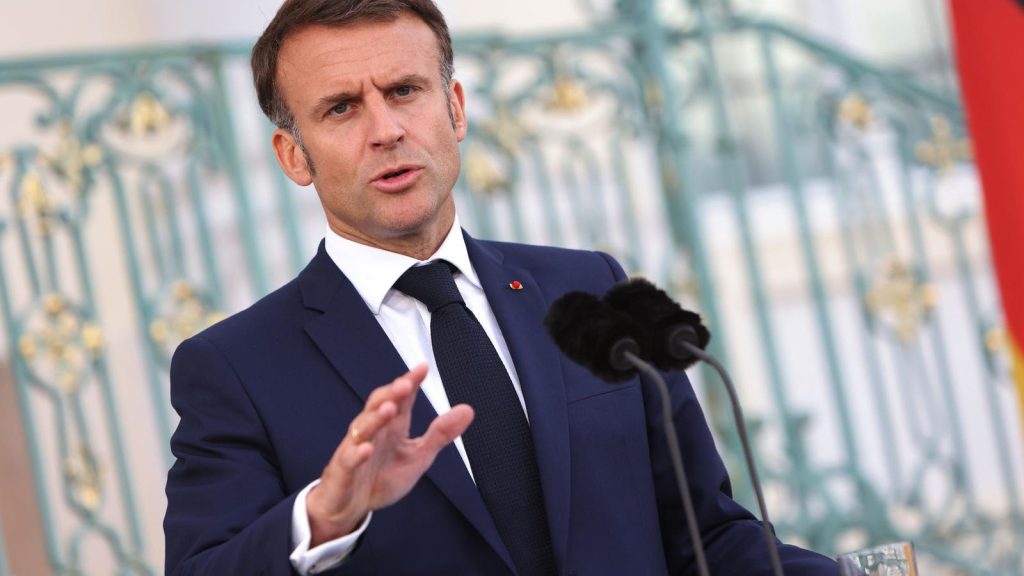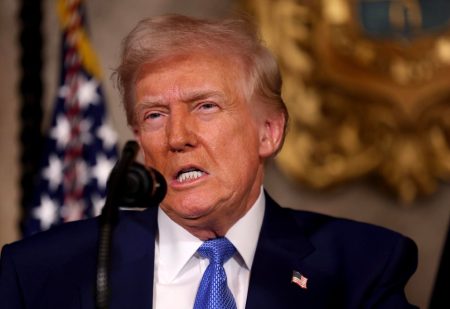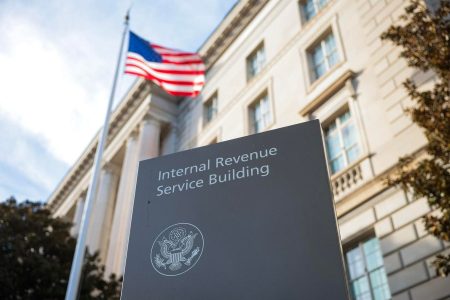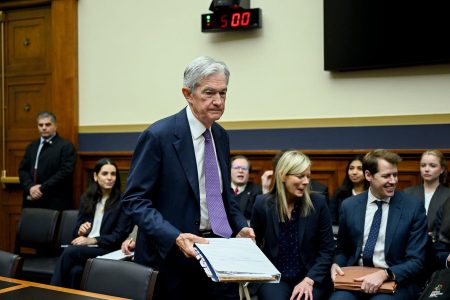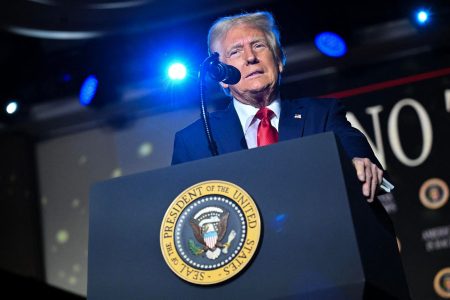The recent collapse of the Barnier government in France has triggered a political whirlwind, compelling President Emmanuel Macron to address the nation and outline a strategy for navigating the ensuing crisis. Macron, while accepting responsibility for the snap election that precipitated the government’s downfall, firmly rejected any notion of curtailing his presidential term. Instead, he pointedly attributed the political upheaval to the disruptive influence of Marine Le Pen’s Rassemblement National party. This assertive stance sets the stage for a period of intense political maneuvering as France grapples with the task of forming a stable and functional government.
The immediate priority is to prevent any disruption to essential government services. Mirroring similar situations in other countries, such as the United States, France plans to enact emergency legislation to ensure the continued collection of taxes and the timely payment of civil servants and other government employees. This pragmatic approach aims to maintain stability and prevent the negative consequences of a governmental shutdown. The legislative process is expected to be expedited to minimize any potential disruption and provide a sense of continuity amidst political uncertainty.
Crucially, the appointment of a new prime minister and the formation of a cabinet are imminent, with the goal of passing a new budget in early 2025. Several potential candidates for the premiership have emerged, representing a range of political backgrounds and experience. These include figures like Bernard Caseneuve, prominent during previous government formation discussions; Francois Bayrou, a seasoned centrist politician with close ties to Macron; and Sébastien Lecornu, the current defense minister, known for his competence and lack of controversy. The selection of the next prime minister will send a strong signal about the direction of the new government and Macron’s political strategy.
The ideal scenario for Macron would be to secure the support, or at least the active participation, of the Socialist Party in the new government. Such a coalition would represent a decisive break from the far-left and potentially forge a more robust and enduring governing majority. However, it would also require the Socialists to distance themselves from their traditional allies on the left, a move that could carry political risks. Macron’s efforts to build a broad-based coalition underscore the challenges of navigating the fragmented political landscape in France.
In an attempt to foster consensus and build a government of national unity, Macron convened a meeting with the leaders of the major political parties, excluding representatives from the far-left and far-right. This strategic decision reflects Macron’s desire to transcend partisan divisions and prioritize the national interest. However, the success of this initiative remains uncertain, as the various parties have their own agendas and priorities. The outcome of these negotiations will be critical in determining the stability and effectiveness of the new government.
The coming weeks will be decisive in determining the character of the next French government. Will it be a solid, cohesive entity capable of governing effectively, or a more fragile, caretaker administration focused primarily on maintaining stability until the next general election? Regardless of the outcome, the political jockeying for the 2025 election has already begun, with speculation swirling about Macron’s prospects for re-election and the ongoing legal challenges facing Marine Le Pen. Of greater concern, however, is the apparent lack of awareness among many politicians of the escalating financial and reputational risks associated with this political impasse. Equally troubling is the limited recognition of the need to reform the French constitution and political processes to address the shortcomings exposed by this crisis. These underlying issues pose significant challenges for the future of French governance and require thoughtful consideration and decisive action.
The current political turmoil in France underscores the inherent complexities and fragilities of parliamentary democracies. The collapse of the Barnier government, while triggered by specific events, reveals deeper structural issues within the French political system. The proliferation of political parties, the difficulty of forming stable coalitions, and the increasing polarization of the electorate contribute to a volatile political environment. The need for constitutional reform to address these challenges has become increasingly apparent.
The potential consequences of the current impasse are significant. Political instability can undermine economic confidence, deter investment, and erode public trust in government. Moreover, the ongoing political drama distracts from other pressing issues facing the country, such as economic inequality, social unrest, and the threat of terrorism. Addressing these challenges requires a stable and effective government capable of implementing long-term solutions.
Macron’s efforts to forge a government of national unity represent a recognition of the need for greater political cooperation. However, achieving this goal will require significant compromises from all parties involved. The temptation to prioritize short-term political gains over long-term stability must be resisted. The future of France depends on the ability of its political leaders to rise above partisan divisions and work together in the national interest.
The ongoing political crisis in France also highlights the importance of strong leadership. In times of uncertainty and upheaval, the public looks to its leaders for guidance and reassurance. Macron’s decisive actions and clear communication have helped to stabilize the situation and maintain a sense of order. However, the ultimate success of his efforts will depend on his ability to unite the country and build a broad-based consensus around a shared vision for the future.
The political drama unfolding in France serves as a reminder of the importance of democratic institutions and the need for constant vigilance in protecting them. The fragility of democratic systems should not be taken for granted. The events in France offer a valuable lesson for other democracies around the world, highlighting the need for strong institutions, responsible leadership, and a commitment to the principles of democratic governance.




